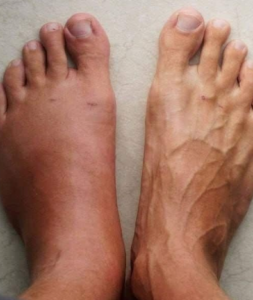One Month Before a Heart Attack, Your Body Will Alert You: Here Are the 6 Symptoms!
Heart attacks don’t usually happen without warning. In many cases, the body sends distress signals weeks before the event, but they are often ignored or mistaken for minor health issues. Recognizing these early symptoms can be life-saving, allowing individuals to seek medical attention before the situation becomes critical.
1. Chest Discomfort and Pain
One of the most common warning signs of an impending heart attack is chest pain or discomfort. This may feel like pressure, tightness, or a squeezing sensation in the chest. The pain can last for a few minutes and may come and go. While some people experience severe pain, others might only feel mild discomfort. It’s important not to dismiss any form of chest pain, especially if it occurs frequently or intensifies with physical activity.
2. Shortness of Breath
If you find yourself struggling to catch your breath after light physical exertion or even while at rest, it could be a sign that your heart isn’t pumping efficiently. This symptom occurs because the heart is struggling to circulate oxygen-rich blood throughout the body. Shortness of breath can occur with or without chest pain, making it a sneaky but serious warning sign.
3. Extreme Fatigue
Unusual and persistent fatigue is another red flag. If you feel exhausted even after getting enough sleep, or if simple tasks like climbing stairs or carrying groceries leave you drained, your heart might be in distress. The body uses fatigue as a way to signal that the heart is working harder than normal to maintain circulation. This symptom is especially common in women.
4. Dizziness and Lightheadedness
Frequent dizziness, feeling faint, or sudden bouts of lightheadedness may indicate reduced blood flow to the brain. If your heart is struggling to pump efficiently, it can cause fluctuations in blood pressure, leading to dizzy spells. This symptom should not be ignored, especially if it happens often or is accompanied by chest discomfort.
5. Cold Sweats and Nausea
Sudden cold sweats, excessive sweating without exertion, or feeling nauseated can be early warning signs of a heart attack. Many people mistake these symptoms for the flu or food poisoning, but if they occur alongside other heart-related symptoms, they should not be ignored. The body’s nervous system often reacts to heart distress by triggering excessive sweating and nausea.
6. Pain in the Arms, Neck, Jaw, or Back
Heart attack symptoms are not always limited to chest pain. Some people experience discomfort in areas such as the arms, neck, jaw, or upper back. This pain can start subtly and gradually worsen. It is often more common in women and can be mistaken for muscle strain. If the pain occurs without an obvious cause, it could be related to heart distress.
When to Seek Medical Help
If you experience any of these symptoms, especially in combination, do not ignore them. Seek medical attention immediately. Early detection can prevent a heart attack and save your life. Always listen to your body—it may be trying to warn you before it’s too late!
